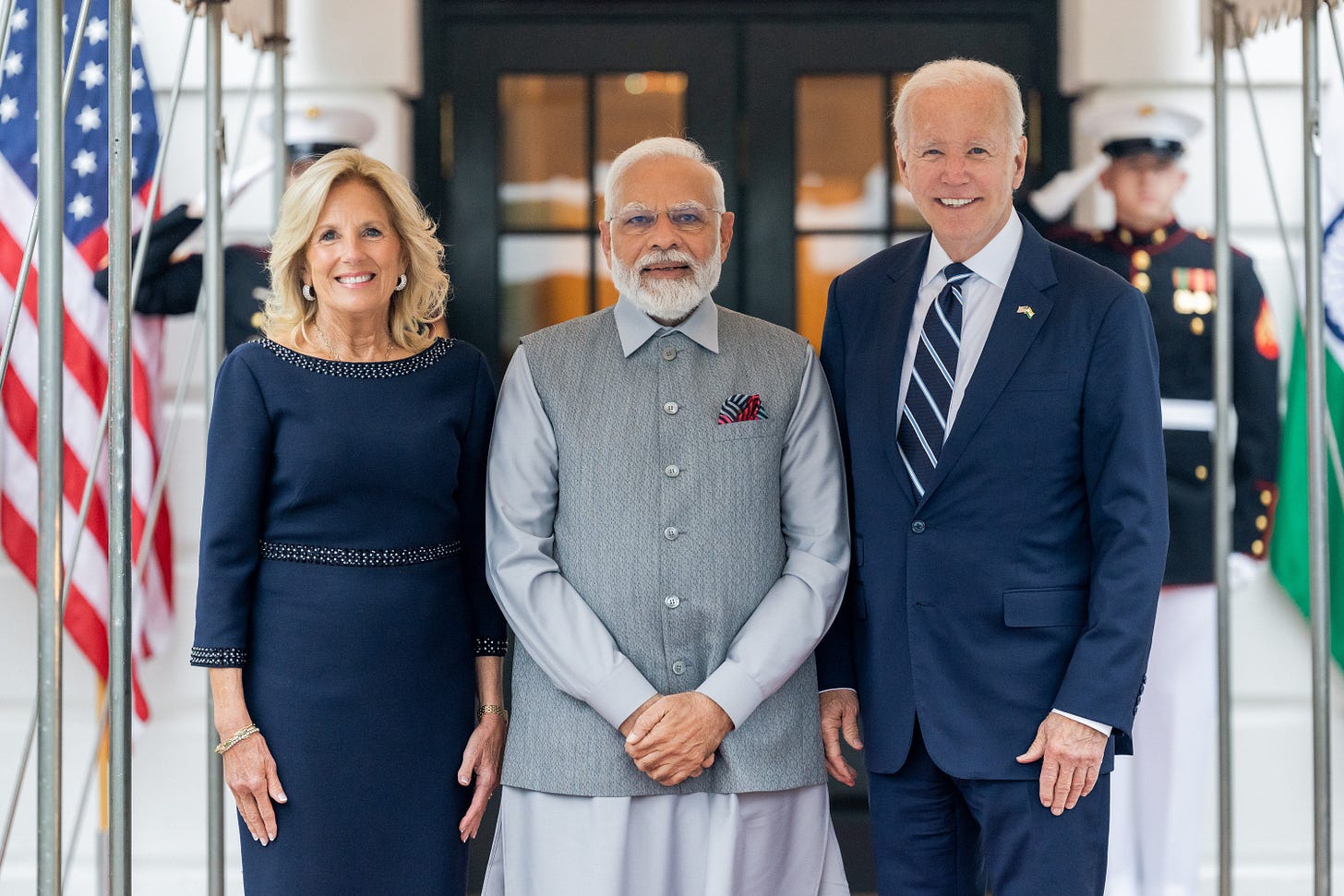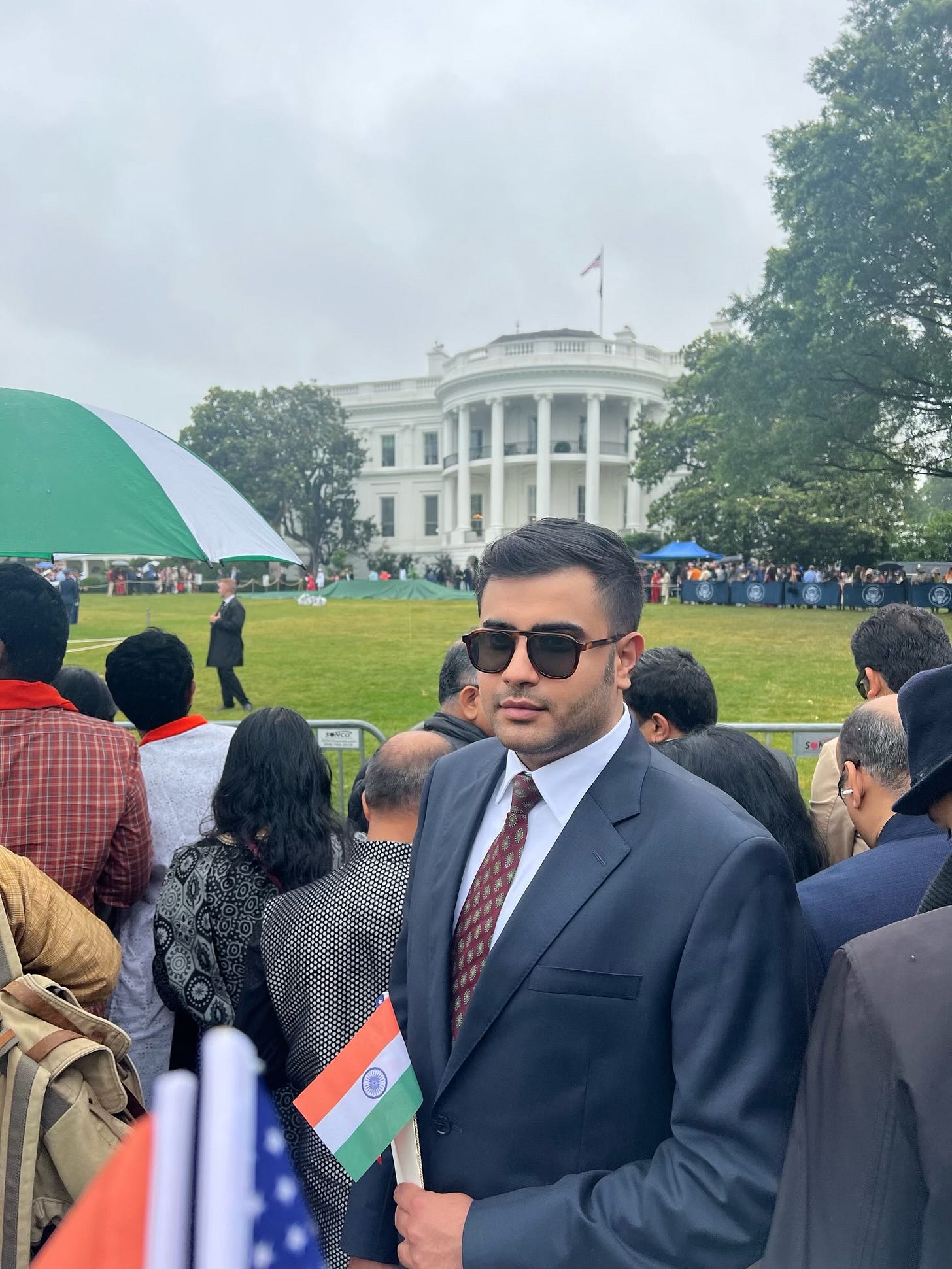India’s Democratic Pulse: What the Election Results Mean for the World
The Western world eagerly awaits the outcome of the 2024 Lok Sabha elections, as much as an ordinary Indian citizen does.

Anticipation Builds as India's Election Nears Conclusion
As India’s general election draws to a close, the world’s eyes are fixed on the outcome. With Prime Minister Narendra Modi having just concluded a 45-hour "maun vrat" (vow of silence) meditation, speculation is rife about whether he will retain power comfortably or if his Bharatiya Janata Party (BJP) will secure a leaner majority. With polling in the protracted 7-phase election now over, the results, expected by the late afternoon of 4th June, will significantly shape India’s trajectory in the coming years. Writing from my assumed perspective of a US-based journalist for a respected European publication, the anticipation and implications of this election are profound.
Western Perceptions of Indian Democracy
Conversations with Western officials on popular US TV news outlets and in leading newspapers indicate a palpable concern about the state of India’s democracy under PM Modi’s leadership. These discussions often echo sentiments from analogous times during China’s rise. Western nations have historically balanced commercial interests with political values, a tactic evident since the post-Tiananmen Square era, not to mention their support for autocratic monarchies in the oil-rich Middle East. Similarly, today’s Western officials express hesitation—especially in the public domain—in addressing the perceived or practical democratic backsliding in India, fearing accusations of hypocrisy and diplomatic repercussions.
Yet, despite these concerns, India’s political landscape remains diverse, nowhere close to the one-party system of China or the one-man rule in Russia. The BJP, while dominant, controls fewer than half of the state governments and garnered just 38% of the vote in the 2019 general election. This, however, was sufficient for the BJP to secure a comfortable majority, given the “first-past-the-post” system it inherited from Britain. Despite some predictions and projections of Modi sweeping the polls, the outcome of the current election remains far from certain, reflecting India’s robust democratic processes.
Strategic Concerns and Geopolitical Dynamics
Western officials largely support India’s development as a strategic counterweight to China. However, there is anxiety that a more authoritarian India could validate China’s governance model, especially in the Global South, thereby undermining the Western-led global order. This perspective underscores the importance of India’s role in global geopolitics.
Some argue that Western governments need to adopt a more coordinated approach, drawing lessons from their experiences with China. This includes leveraging technology and investment more strategically and presenting unified stances on democratic principles. Such measures could help mitigate the risks of individual nations facing punitive actions when addressing human rights concerns.
India's Enhanced Global Stature Post-G-20 Summit
The highly successful G-20 Summit in New Delhi last year has definitely raised India’s stature in the comity of nations. The arrangements, personally supervised by PM Modi, not only showcased India’s economic clout and cultural soft power but also transformed the Indian presidency into year-long celebrations with many sectoral meetings taking place in cities like Srinagar, away from the national capital. This strategic dispersion of events highlighted India’s diverse regional strengths and underscored its growing influence on the global stage.
The Road Ahead: Geopolitical and Economic Implications
The West’s approach to India is unlikely to shift dramatically post-election. The White House rolled out the red carpet, both literally and metaphorically, to welcome PM Modi during his state visit to the USA in June 2022. The Biden administration has maintained a generally permissive stance, which could continue or even intensify if Donald Trump were to return to the White House. Nonetheless, Modi’s potential re-election raises concerns in the Biden administration, if not the US Congress, particularly if his administration intensifies its authoritarian tendencies domestically and its assertive policies internationally.
Regardless of the election’s outcome, India’s significance on the global stage cannot be overstated. Its sheer size, demographic dynamism, and economic potential make it an indispensable player in geopolitics. As a counterweight to China, a trade partner, and a source of skilled manpower, India’s trajectory will profoundly impact global economic and political landscapes.
India’s Path to Global Leadership
India’s journey towards becoming a global power is fraught with challenges and opportunities. Its aspiration for a permanent seat on the United Nations Security Council reflects its growing clout. Even without veto power, such a position would symbolize India’s enhanced role in international affairs.
As India navigates this critical juncture, the next half-decade will be pivotal. The world will closely watch how it balances internal democratic health with external strategic ambitions while maintaining steady economic growth that is both sustainable and equitable. The West, meanwhile, must reconsider its strategies to support and engage with India, ensuring that it remains a democratic beacon and a bulwark against autocracy in South Asia and beyond.
In summary, the anticipation surrounding India’s election underscores its importance as an emerging great power. The verdict and the mandate of its massive electorate, likely to be available by the evening of 4th June, will shape not only India’s future but also the broader geopolitical dynamics of the region and the world.





